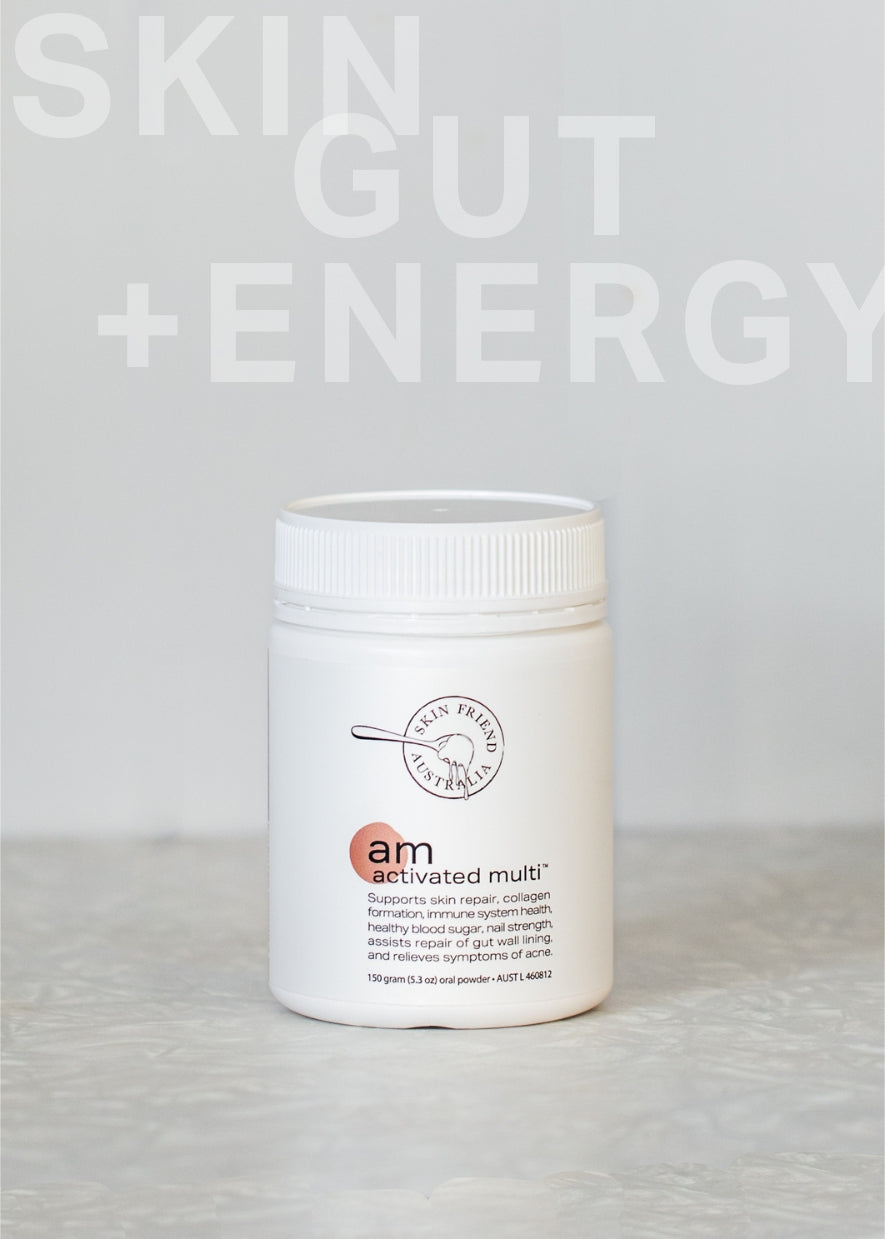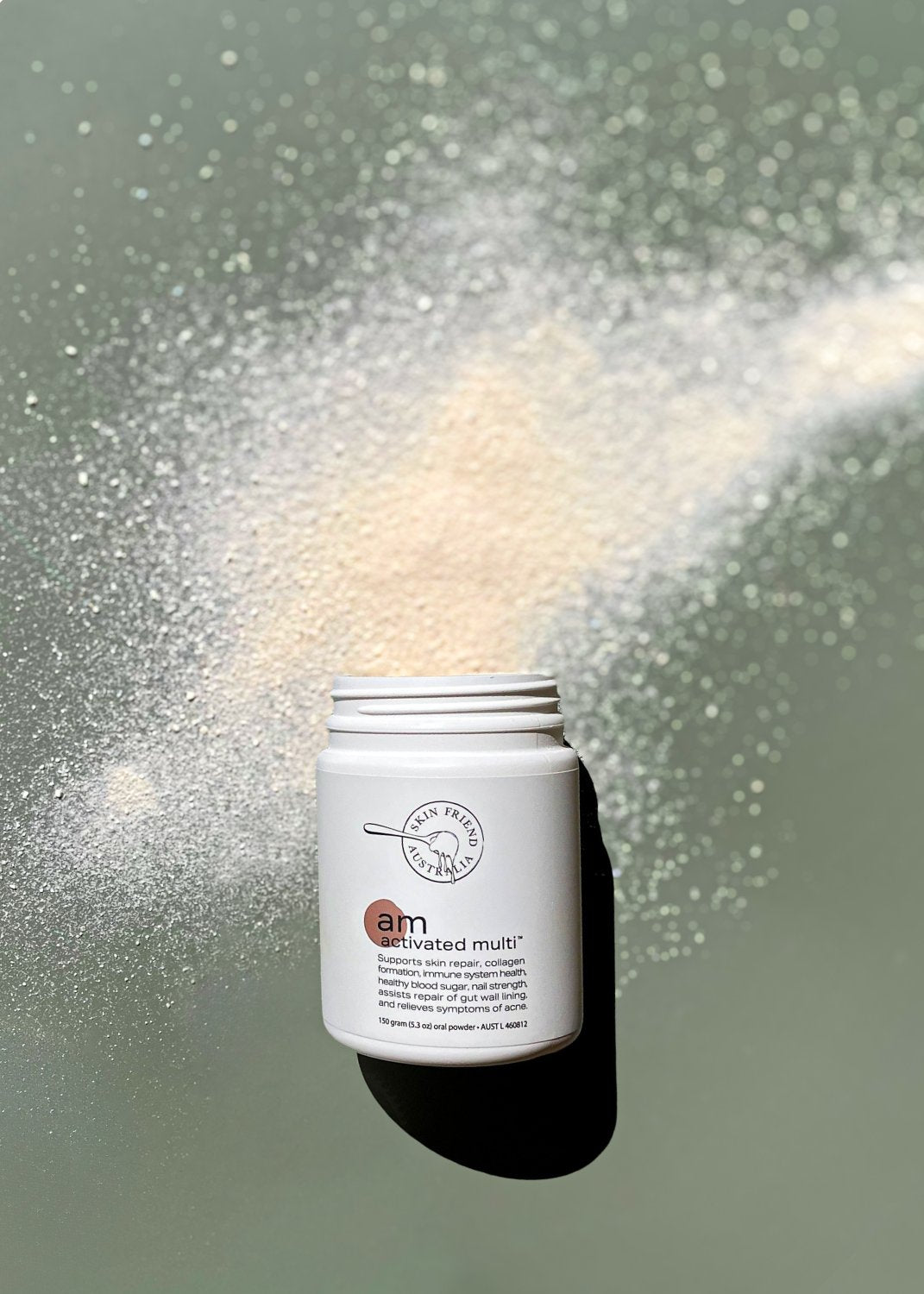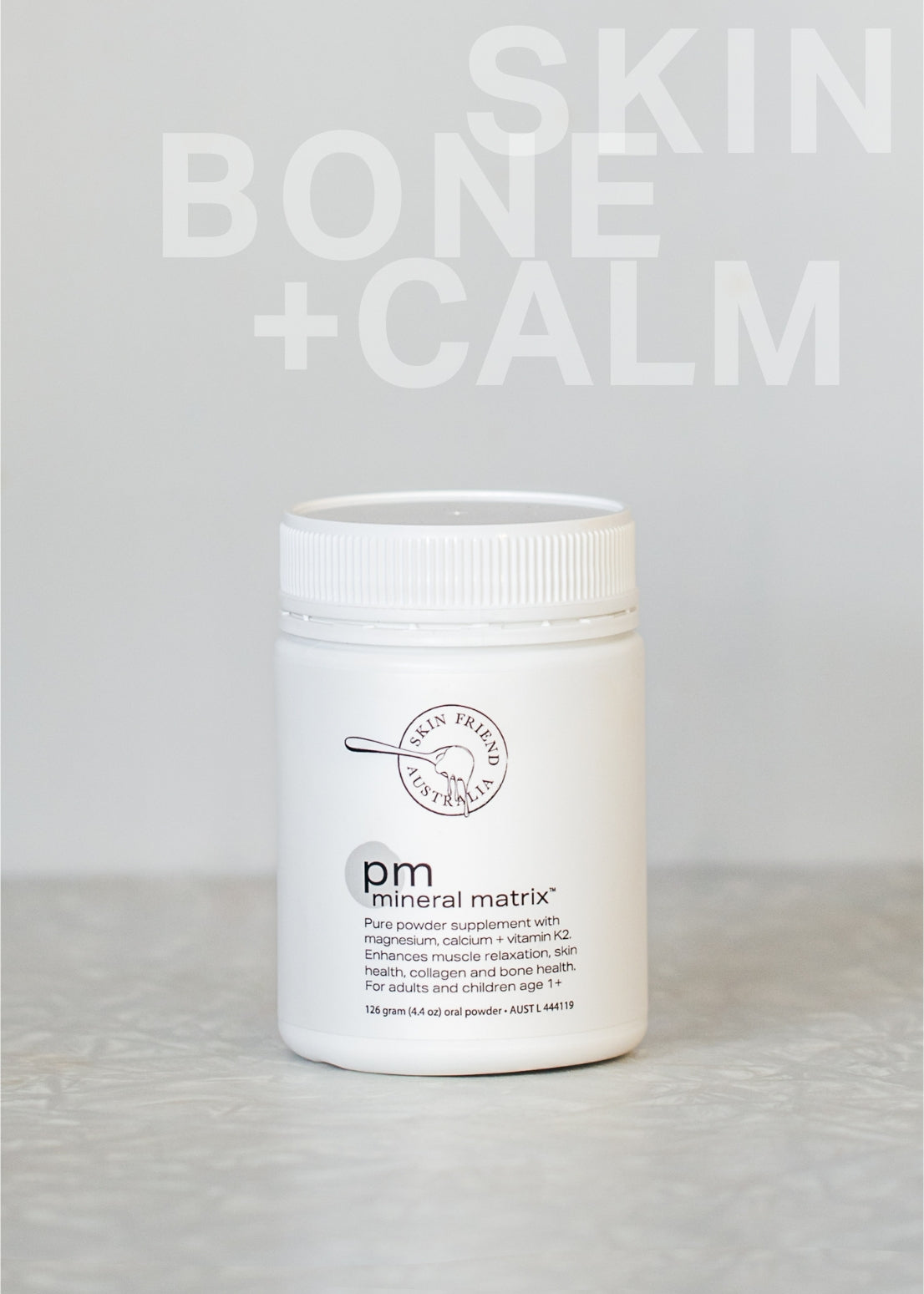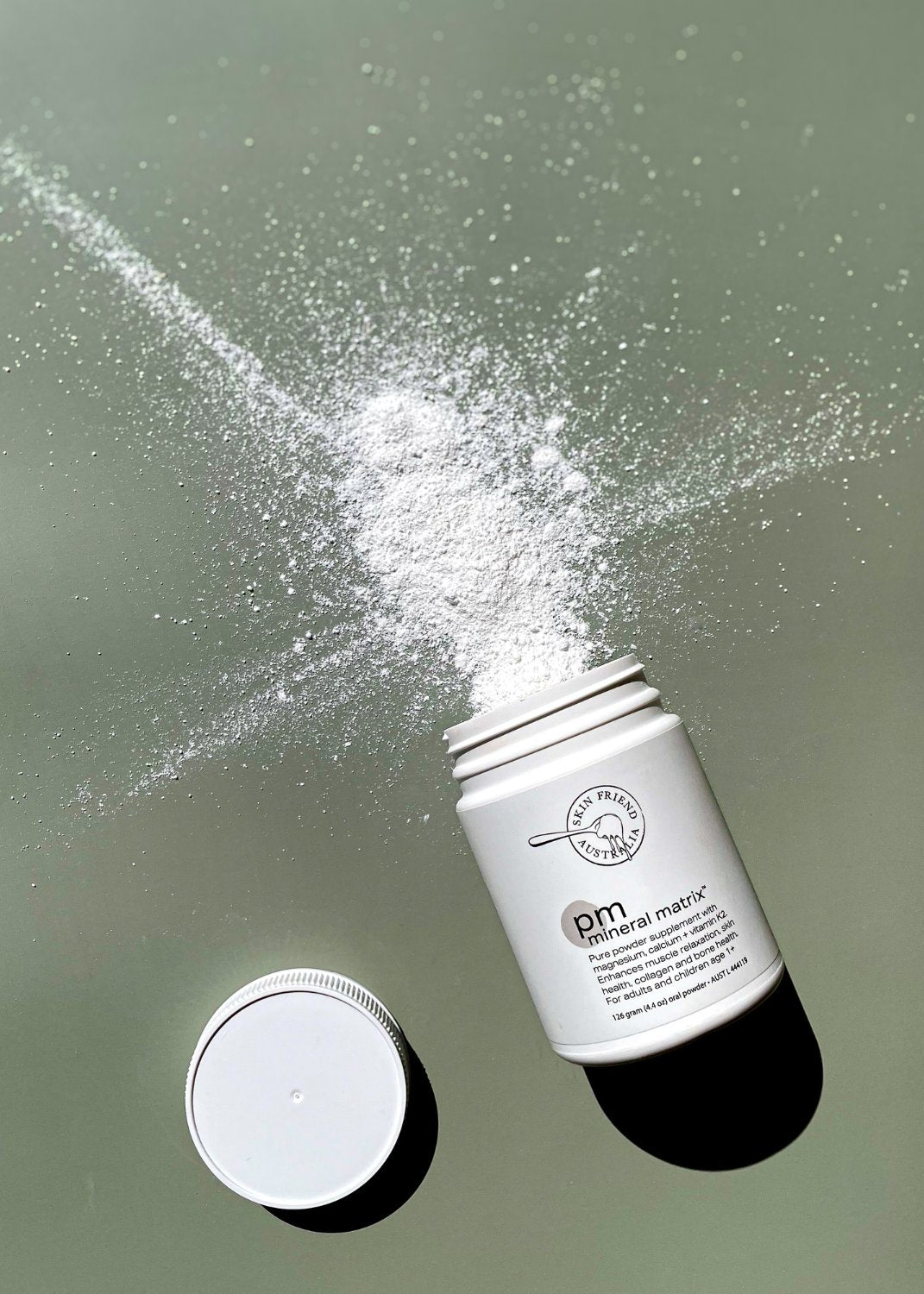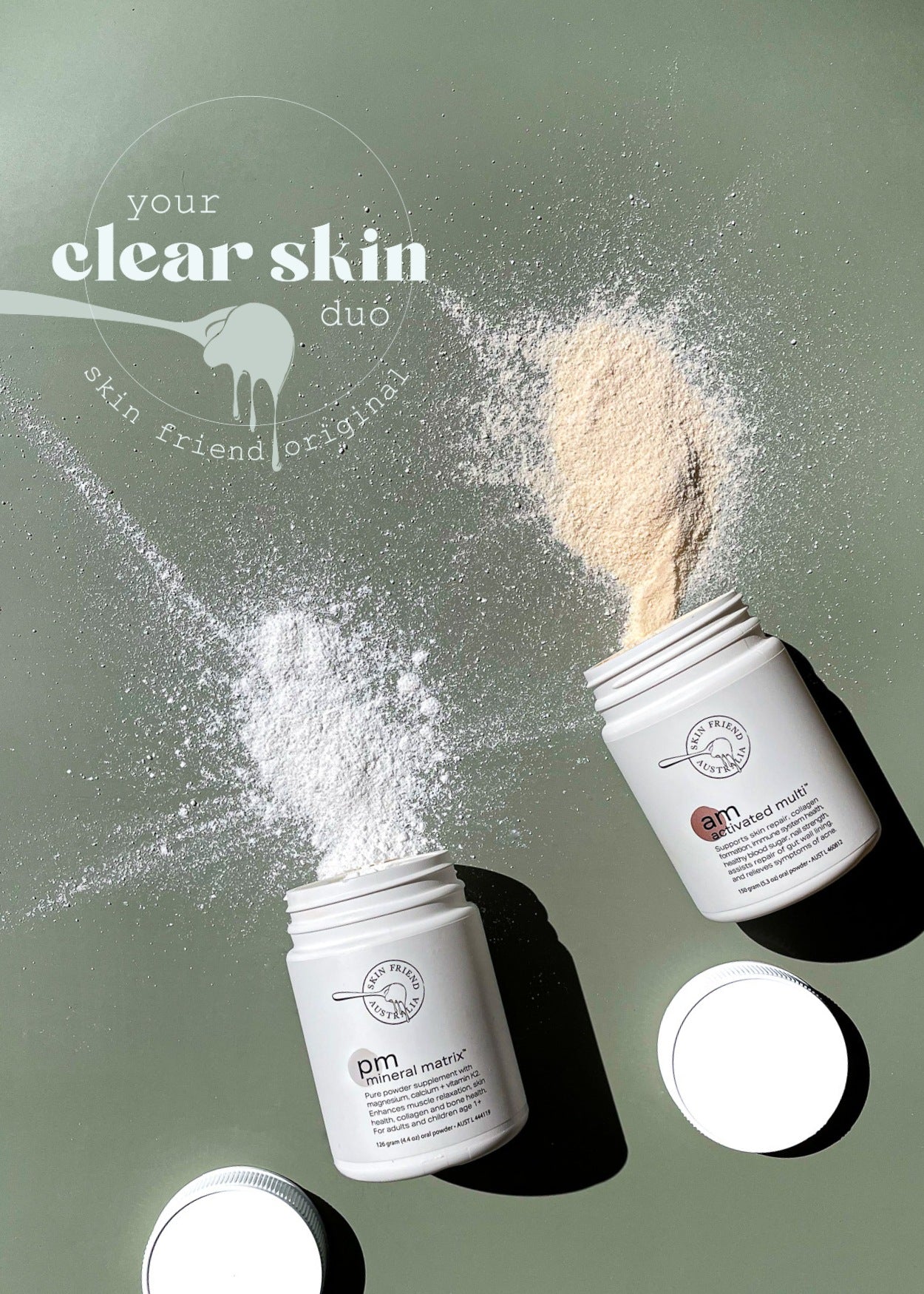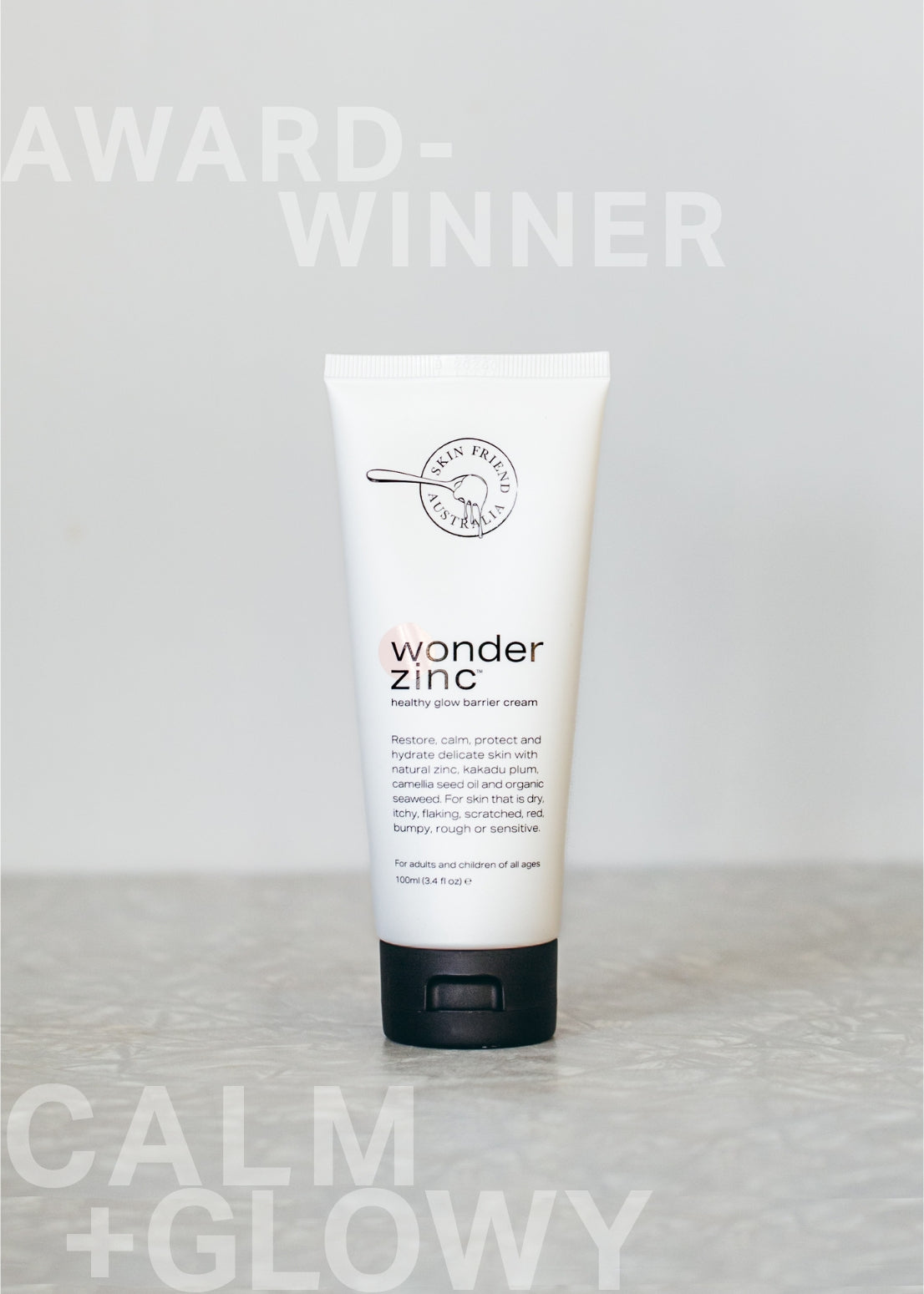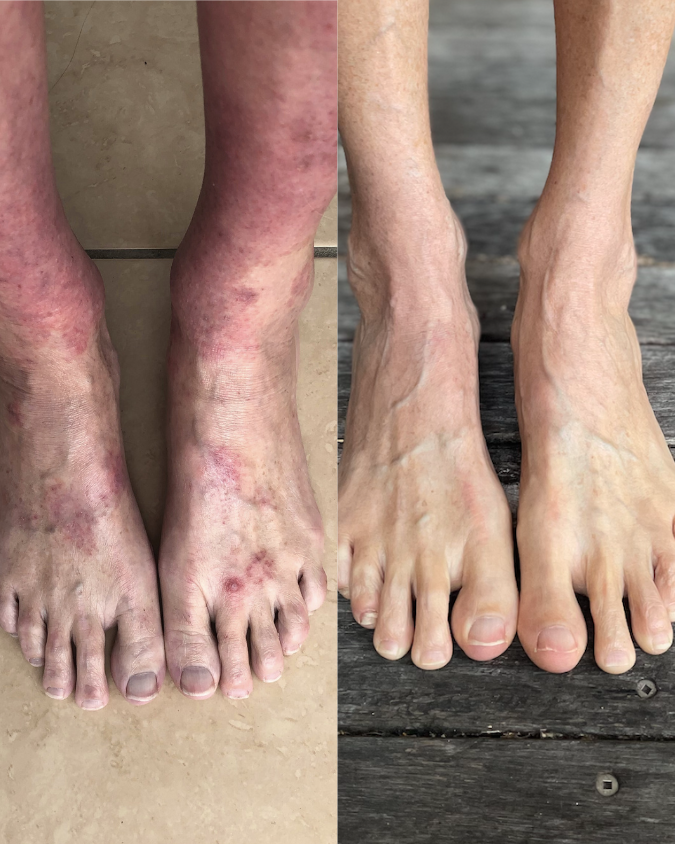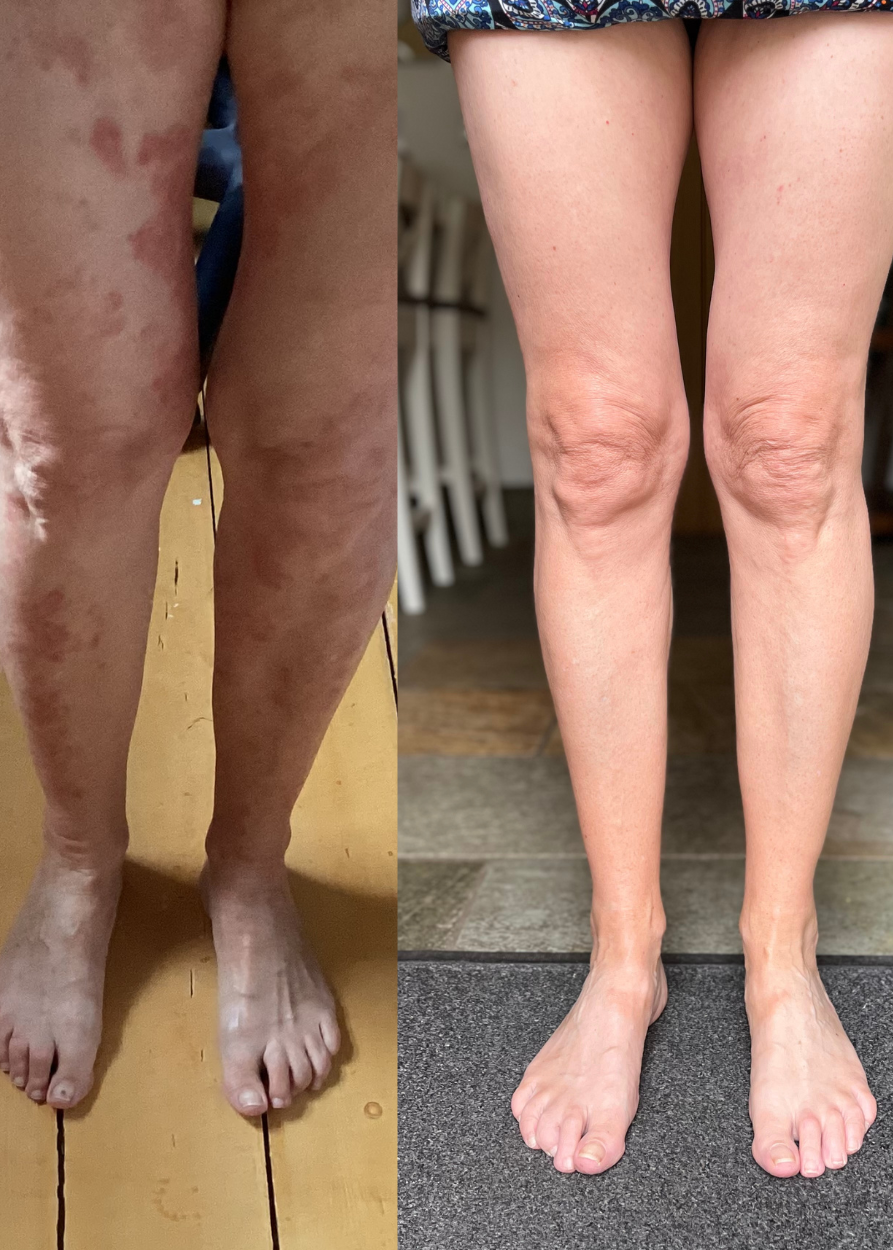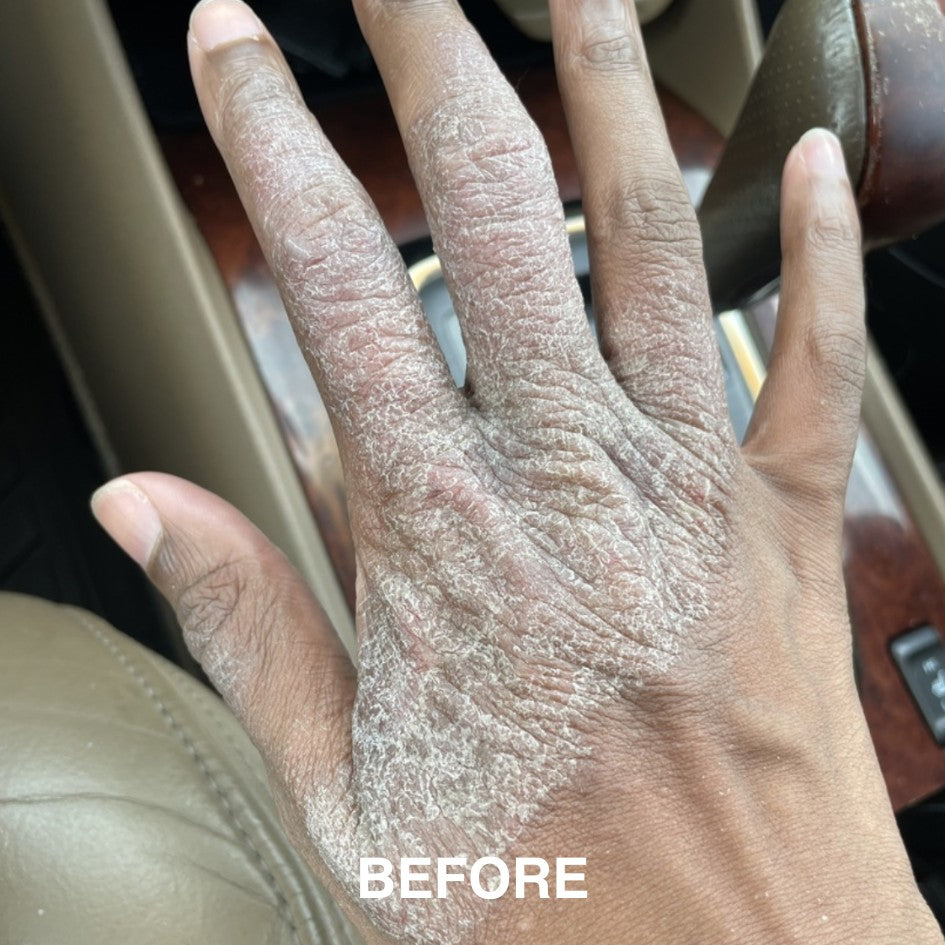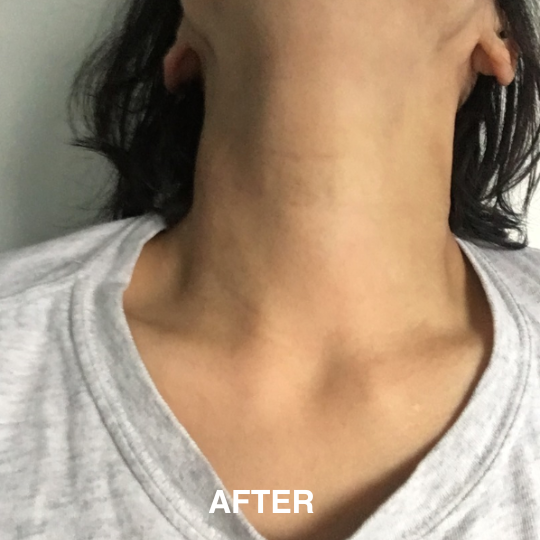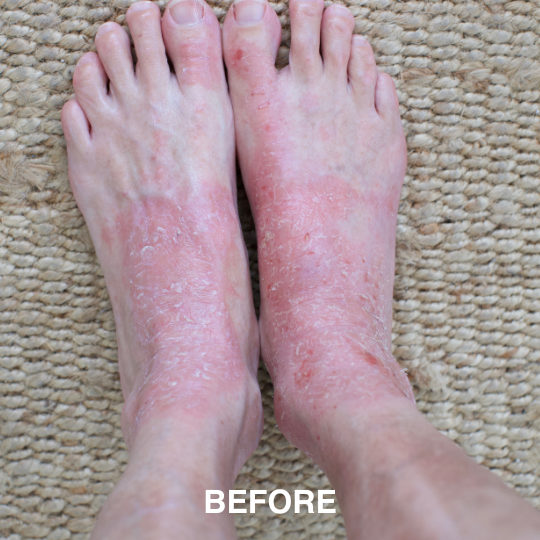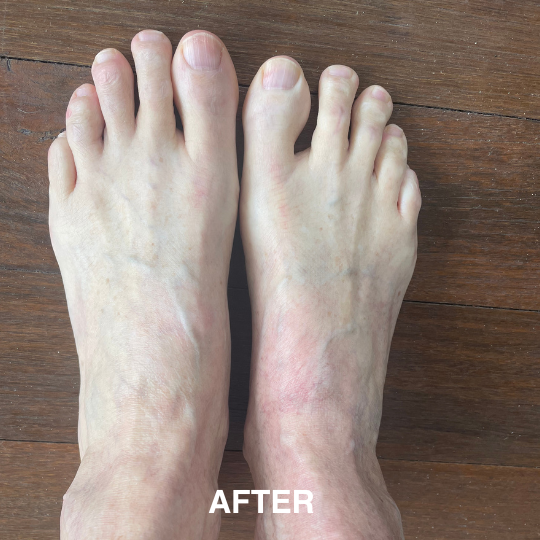If you have eczema or hives or any other inflammatory skin condition, calcium and magnesium could be your new BFFs.
The research says that Calcium and Magnesium are both essential minerals that contribute to good health.
And I’ll be discussing why taking calcium and magnesium in a ratio of 1:1 is ideal when it comes to supplementing with these important minerals.
Calcium
Calcium is the most abundant mineral in the body and is required for bone health, muscular contraction and relaxation, cardiovascular health and also skin health. It boosts the skins acid mantle so to protect itself against dust mites and infections and also helps to maintain the right amount of lipids in the epidermis layer of the skin by triggering lipid production.
- Calcium carbonate is used in our Skin Friend PM supplements as it is highly alkalising in the blood and urine. It has been found that it can temporarily neutralise histamine intolerance reactions due to its alkalising nature.
- The body also eliminates excess salicylates from the body when the urine pH reaches 7.5, meaning that due to its alkalising effects, calcium carbonate can also temporarily reduce salicylate intolerance for a couple of hours.
You can find out more about why I chose calcium carbonate in Skin Friend PM here.
Magnesium
If you are taking calcium you will want to take magnesium at the same time for the following reasons...
- Magnesium plays an important role in calcium metabolism and absorption, and is required for over 300 biochemical reactions in the body including maintaining blood glucose control, regulation of blood pressure and muscle and nerve function.
- Magnesium may also improve sleep as it activates the parasympathetic nervous system and regulates melatonin, which helps with relaxation and sleep-wake cycles in the body respectively.
Excess calcium in the system in conjunction with low magnesium can cause the body to produce more cortisol, the stress hormone, which can further interfere with your sleep patterns (Boyle, Lawton & Dye, 2017).
The ability for your body to absorb magnesium naturally declines with age, therefore magnesium deficiency is often common later in life. Magnesium deficiency can also be caused by:
- diarrhoea
- poor diet
- low protein intake
- fat malabsorption
- taking methyl B12
- frequent consumption of alcohol, antibiotics or diuretics.
It is clear that these minerals are important for our health however it is also important to understand that they need to be consumed (whether in the diet or when supplementing) in the correct ratios to maximise their absorption.
Magnesium is needed for the body to be able to readily absorb calcium, and due to this, calcium should be taken with magnesium for optimal absorption.
- Magnesium has also been shown to dissolve excess calcium in the blood.
- Magnesium is a natural ‘calcium channel blocker’ which helps with heart health by keeping calcium levels in balance.
A magnesium and calcium deficiency may also lead to a vitamin D deficiency, as it may affect the absorption of vitamin D. Vitamin D should be taken separately to ensure the body is in balance.
I have chosen to use magnesium glycinate in Skin Friend PM as it has been found to be a highly bioavailable and absorbable form of magnesium (Coudray et al., 2005). It has also been found to be highly absorbable for patients that have undergone intestinal resection and is beneficial for people with digestive issues (Schuette et al., 1994). In addition to this, it is also less acidic than magnesium citrate, which contains higher levels of citric acid.
Why taking Calcium and Magnesium in an equal (1:1) ratio is best
Ensuring the correct ratios are consumed is important because calcium and magnesium belong to the same family of elements so can compete with each other for absorption.
In the kidneys, the calcium receptors can inhibit reabsorption of magnesium and any excesses will be excreted in the urine (Kawata & Nagano 2005).
Additionally, in the gut, calcium and magnesium can also compete for intestinal absorption (Hardwick et al, 1991). If there is a small amount of calcium but an abundance of magnesium in the intestines the magnesium will be more actively absorbed.
If the the tables are turned however and there is more calcium than magnesium then there will be less absorption of both minerals.
The best way to avoid this competitiveness is to consume calcium and magnesium in equal ratios. That's why Skin Friend PM contains a 1:1 ratio of calcium and magnesium, for optimal alkalising effects and for absorption.
Glycine
Skin Friend PM also contains glycine, which has been found to further improve sleep quality. Even a low dose of glycine has been shown to subjectively improve the quality of sleep and reduce fatigue during the day.
Research has found that glycine shortened non-REM sleep latency and also promoted sleep via the modulating thermoregulation and circadian rhythms (Kawai et al., 2015).
Silica
Silica is included in Skin Friend PM to aid in calcium absorption.
Shop the Story
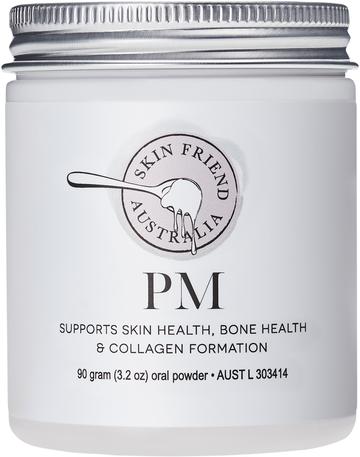
References:
Kawata T.N., Nagano, N. (2005). The calcium receptor and magnesium metabolism, Clinical Calcium.(11):43-50. DOI: CliCa051118051812
Hardwick LL., Jones, MR., Brautbar, N., Lee, DB. (1991). Magnesium absorption: mechanisms and the influence of vitamin D, calcium and phosphate. The Journal of Nutrition, 121(1), 13-23. DOI: 10.1093/jn/121.1.13
Boyle, N., Lawton, C. and Dye, L., 2017. The effects of magnesium supplementation on subjective anxiety and stress—a systematic review. Nutrients, 9(5), p.429.
Kawai, N., Sakai, N., Okuro, M., Karakawa, S., Tsuneyoshi, Y., Kawasaki, N., Takeda, T., Bannai, M. and Nishino, S., 2015. The sleep-promoting and hypothermic effects of glycine are mediated by NMDA receptors in the suprachiasmatic nucleus. Neuropsychopharmacology, 40(6), p.1405.
Coudray C, Rambeau M, Feillet-Coudray C, et al. Study of magnesium bioavailability from ten organic and inorganic mg salts in mg-depleted rats using a stable isotope approach. Magnesium research. 2005;18(4):215.
Schuette SA, Lashner BA, Janghorbani M. Bioavailability of magnesium diglycinate vs magnesium oxide in patients with ileal resection. Journal of Parenteral and Enteral Nutrition. 1994;18(5):430-435.










